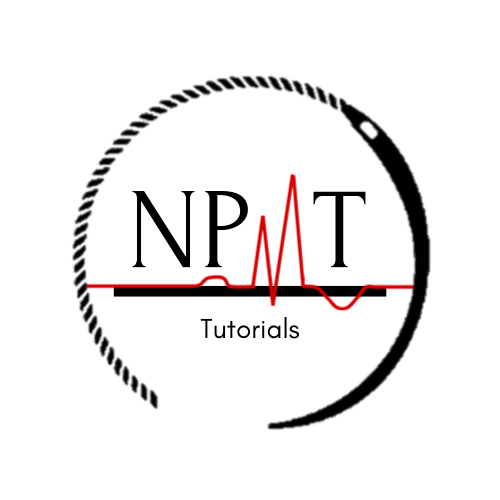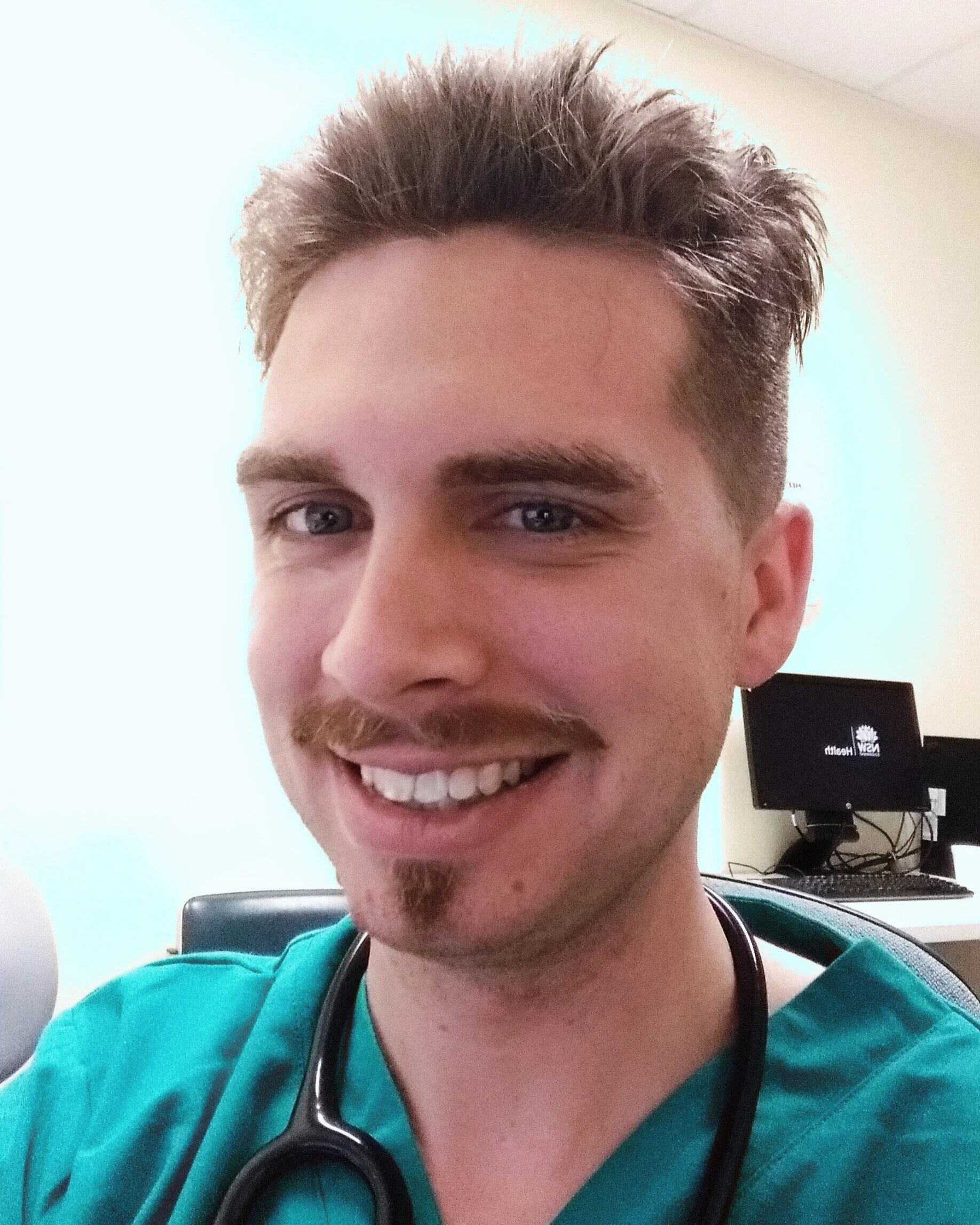“The mediocre teacher tells. The good teacher explains. The superior teacher demonstrates. The great teacher inspires.”
History
Near-peer education has been a key component of working on the Central Coast for many junior medical officers (JMO) and students alike since 2015. It was recognised that near-peer mentoring and incidental teaching was occurring in response to both medical student and JMO requirements. The transition to clinical years in medical school is often difficult with students juggling full time study along with clinical duties. JMOs are often the people most well equipped to assist clinical phase medical students, as they have most recently experienced these stresses and can offer unique insights into the next phase of career progression.
JMOs have also face their own challenges with growing requirements prior to commencing vocational training programs. Teaching is one of these domains, and while many were performing incidental teaching it is often quite difficult individually to organise and prepare for with additional difficulties in obtaining formal recognition for teaching involvement. The teaching network was founded on supporting junior doctors to teach while making efforts to standardise and help improve JMOs as clinical teachers. This has been achieved through standardised resources, teaching preparation support, teaching education, logistical support, formal feedback processes and formal recognition of involvement in the program.
STITCCH (Surgical Trainee Initiated Teaching at Central Coast Hospitals) formed out of this with 10 foundational modules in 2016. This award-winning program developed multiple offshoots including: bedside teaching program, skills workshops, research collaboration initiatives and teaching training nights. The rationale behind the development of each program is identical to the foundational reasons for the program, and each portfolio continues to empower junior doctors to take the next step as teachers. For information about each program continue reading below.
What is Near-Peer Teaching?
“The successful teacher is no longer on a height, pumping knowledge at high pressure into passive receptacles.”
Near-Peer teaching is a relatively new concept in clinical teaching research but reflects an age-old mentoring process whereby advice and teaching is informally handed over to the next generation.
Near-peer definitions differ depending on the source consulted but generally reflect a gap in training of between 1-5 years. The magnitude of this gap is significant as one of the pivotal identified features that make’s near-peer teaching unique and beneficial is the concept of cognitive congruence. The idea that the close alignment in knowledge framework, experience and language. This is perceived to create an atmosphere of discussion where students are more comfortable to explore the gaps in their knowledge.
Despite multiple published articles attesting to both the success and widespread nature of both formal and informal near-peer teaching it faces a number of challenges:
- Time to revise information and topics taught
- Time to perform lesson planning
- Time to prepare resources and presentation aids
- Standardisation of teaching
- Senior clinician oversight of content
Our website seeks to address these challenges and by doing so empower the next generation of clinical teachers.
The Programs
STITCCH
Tutorials
The foundational piece of the near-peer teaching program at the central coast was the STITCCH (Surgical Trainee Initiated Teaching at Central Coast Hospitals). What began as a surgically focused tutorial workshop has extended across a variety of topics, and the disciplines involved continue expanding. As such the program was rebranded in 2019 to reflect the expanding nature of the content taught.
Classroom based small group teaching
Developed to cover key areas of medical knowledge to assist with the transition to internship
Expanded to cover sessions on surgical topics for medical students during their surgery rotation
PRAISE
Bedside teaching
Bedside teaching has long been an incidental pillar in medical education. Efforts to formalise the process by which incidental teaching most commonly occured led to the formation of PRAISE (Promoting Residents’ Active Involvement in Student Education). The program has also often extended into educational evenings targeting JMOs to educate the educator!
RISSK
Skills Teaching
RISSK (Resident Initiated Surgical Skills Program) developed as a mechanism to teach medical students common procedures in a simulated environment. This is consistent with many institutions around the world and published literature illustrating student outcomes do not differ if skills are taught by near-peer tutors. It aims to provide skills teaching and additional experience in an undemanding environment benefiting from the pre-existing relationships and reduced barriers between near-peer educators.
The Team
Director Teaching and Research Unit
Amanda Dawson
Dr Dawson is a Specialist Academic General Surgeon on the Central Coast of NSW, an Associate Professor to the University of Newcastle and the Clinical Dean and Director of Education and Research at the Central Coast. She has been a foundational pillar and ongoing source of support to the NPMT program since its inception in 2015. Her work provides key experience in education and a grounding in educational research which facilitates evidence-based teaching to flourish on the Central Coast.
NPMT Coordinator
Phil St Flour
Dr Phil St Flour is a Crit Care SRMO who is passionate about medical education and helping other JMOs develop as teachers.
His Star Wars ranking is: 8, 5, 4, 6, 3, 2, 1, 9
Tutorial (STITCCH) Chair
Shannon Ridgeway
Dr Shannon Ridgeway enjoys travel, good food, sustainable living, and talking about her dog Mika. She has an interest in Critical Care and Surgery.
Bedside Teaching (PRAISE) Chairs
Tobin Steens and Harry Sofatzis
Skills Training (RISSK) Chairs
Polly Teuten and Nick Toosi
Website & Social Media Officers:
Amelia Welch and Josh Turner
Teaching and Research Officers
Brydon Panozzo and Georgina Dixon
Radiology Chair
Louise Wei
Louise is an RMO who is passionate about radiology and teaching young doctors and students how to read scans. She dreams of being a radiologist as it involves her 2 favourite things - limited patient interaction and sitting down at work.
Previous Coordinators:
2019 - Upuli Pahalawatta, Nicholas Hewett, Kieran Muir, James Rodway
2018 - Upuli Pahalawatta, Rob Hoffman, Anastasia Behan- Willett.
2017 - Ben Reardon, Natalie Nicholas
2016 - Richard Arnold
2015 - Jonathan Kam
Founding team:
Junior Medical Officers
Richard Arnold
Jeremy Webb
Ben Reardon
Natalie Nicholas
Sarah Wong
Shiram Swaminathan
Senior Medical Officers and Institutional Support
Amanda Dawson
Martin Veysey
See our contributors page for more information on who has contributed to resources in the past and how to get involved.
Achievements
Awards
Richard Arnold (STITCCH Member) and STITCCH were awarded one of the inaugural 2017 Teaching Excellence Awards from the University of Newcastle Academy of Clinical Educators; this awards seeks to recognise innovation in clinical teaching.
Presentations
Development of a FOAM Website dedicated to Near-Peer Education and Teaching N Hewitt U Pahalawatta, A Dawson ANZMPMEF 2019
Creating Video Skills resources for procedural skills teaching. U Pahalawatta, G Kerrison-Watkin, A Parkinson, S Freeman, J Maloney, A Dawson. ANZMPMEF 2019
Motivations for Teaching and Research. U Pahalawatta, K Cho, W Hu, A Dawson ANZMPMEF 2019
Development of a Single education session for development of JMO teaching Skills. U Pahalawatta, A Dawson ANZMPMEF 2019
Creating and Implementing Collaborative Research Protocols. A Drane, U Pahalawatta, A Dawson ANZMPMEF 2019
Creating an Effective Hospital Culture: Collaboration between Education, Workforce and JMOs U Pahalawatta, A Dawson ANZMPMEF 2019
Short B, Lambeth L, David M, Ryall M, Hood C, Pahalawatta U, Dawson A. 2019. Facilitating a successful transition from academic to clinical education for medical students. Poster presentation at the International Association for Medical Education, AMEE August 2019. AMEE Conference, Vienna 2019
An introduction to Coastal Wilderness Medicine – BEACCHES. U Pahalawatta, M David, A Dawson WADEM Congress, Brisbane 2019
A Novel Method for improving Procedural Skills among Medical students and improving procedural skill teaching capability of JMOs. U Pahalawatta, M David A Dawson International Clinical Skills Conference, Prato 2019
How to create a self-sustainable research organisation? Xiao-Ming Sarah Woon-Shoo-Tong, Upuli Pahalawatta, Andrew Drane, Amanda Dawson Surgical Trainee Organisation for Research on the Central Coast (STORCC) General Surgeons Australia Annual Scientific Meeting / CSSANZ Spring Colorectal Meeting Hobart Tasmania
Facilitating a successful transition from academic to clinical education for medical Students, U Pahalawatta, B Short, C Hood, L Lambeth, MA Ryall, M David, A Dawson ANZPMEF, Melbourne 2018
Lambeth L, David M, Short B, Ryall M, Hood C, Dawson A. Training Central Coast’s future doctors at BEACCHES – a quality improvement project. CCLHD Research, Quality & Innovation Symposium, Gosford, Australia, 29th of October, 2018.
Invitation to present at the November Annual Academic Surgery Conference 7-8 Nov 2019 Melbourne RACS Office Building Networks in the JDoc Space: STORCC Andrew Drane
Development of a Near-Peer Radiology Education Program for Undergraduate Medical Students. U Pahalawatta, S Teh, D Ong, R Rattan, A Dawson E-Poster, accepted RANZCR, Auckland 2019
Publications
Short B, Lambeth L, David M, Ryall M, Hood C, Pahalawatta U, Dawson A. 2019. An immersive orientation program to improve medical student integration and wellbeing. The Clinical Teacher; 16(4):323-328. Wiley-Blackwell Publishing.
Grants
Upuli Pahalawatta - $2000 travel grant obtained to facilitate overseas international conference presentations listed above.









